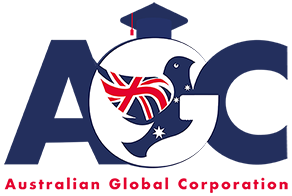STUDY IN AUSTRALIA COSTS
The costs of studying in Australia will depend on the institution and the level of study you choose. The list below gives you an indication of the range of course costs for several types of qualifications.
| 1 | School | $7,800 to $30,000 |
| 2 | English language studies | Around $300 per week depending on course length |
| 3 | Vocational Education and Training (Certificates I to IV, Diploma and Advanced Diploma) |
$4,000 to $22,000 |
| 4 | Undergraduate Bachelor Degree | $15,000 to $33,000* |
| 5 | Postgraduate Masters Degree | $15,000 to $33,000* |
| 6 | Doctoral Degree | $14,000 to $37,000* |
* This does not include high value courses such as veterinary and medical studies. Please visit institution websites directly to see costs for these courses.
SCHOLARSHIPS
Many scholarships are available to students of all nationalities; however, all scholarships conditions are set by the institution or organisation offering the scholarship. Applications have to be done directly with the scholarship provider and to find out if you are eligible to receive a scholarship you must contact the organisation offering the scholarship.
COST OF LIVING IN AUSTRALIA
Want to plan your living expenses in Australia? We will help you.
There is no “one size fits all” plan for all but it is understood that an individual may need approximately $20,000 each year and an average family needs more than $50,000 a year to get by in Australia.
The cost of living may be higher or lower depending on where you live and this estimate does not include the cost of any social, sporting, or other recreation activities you might want to be part of, or any health or emergency costs not covered by your private health insurance or Overseas Student Health Cover (OSHC).
Accommodation costs top the list with home loans, rates, utilities, and maintenance. Food is the second highest followed by car costs which include petrol, insurance, registration, parking, and public transport fares.
Cost of Living Summary
ACCOMMODATION COSTS
| 1 | Hostels and guesthouses | $90 to $150 per week |
| 2 | Shared rental | $85 to $215 per week |
| 3 | Homestay | $235 to $325 per week |
| 4 | Rental | $165 to $440 per week |
OTHER LIVING EXPENSES
| 1 | Groceries and eating out | $80 to $280 per week |
| 2 | Gas and electricity | $35 to $140 per week |
| 3 | Phone and Internet | $20 to $55 per week |
| 4 | Public transport | $15 to $55 per week |
| 5 | Car (ongoing cost) | $150 to $260 per week |
| 6 | Entertainment | $80 to $150 per week |
How can you save?
- If you are renting, share a unit/apartment/house with family or friends as you can share grocery and utility expenses. Plus, it is always nice to come home to great company.
- Check your spending regularly to identify possible savings.
- Avoid shopping without a plan. Compare prices, look out for deals and discounts for things that you cannot live without and make a shopping list. Stop the impulse buying habit and get your budget on track.
- Time your clothing purchase during end of season sales and it will save you hundreds. Another handy tip is to mix and match with cheaper designer items from op shops or second-hand stores.
- Strike gold by shopping in op shops for your home. From spoons to furniture, you will find heaps of pre-loved goods at amazing prices.
- Compare gas and electricity deals to make sure you are getting the best rates.
- Monitor petrol prices and buy when the price cycle is lower.
- Shop for the best mobile plan that offers the best price and usage limits for your needs.
- Make your own meals, pack lunch, breakfast and bring coffee from home.
